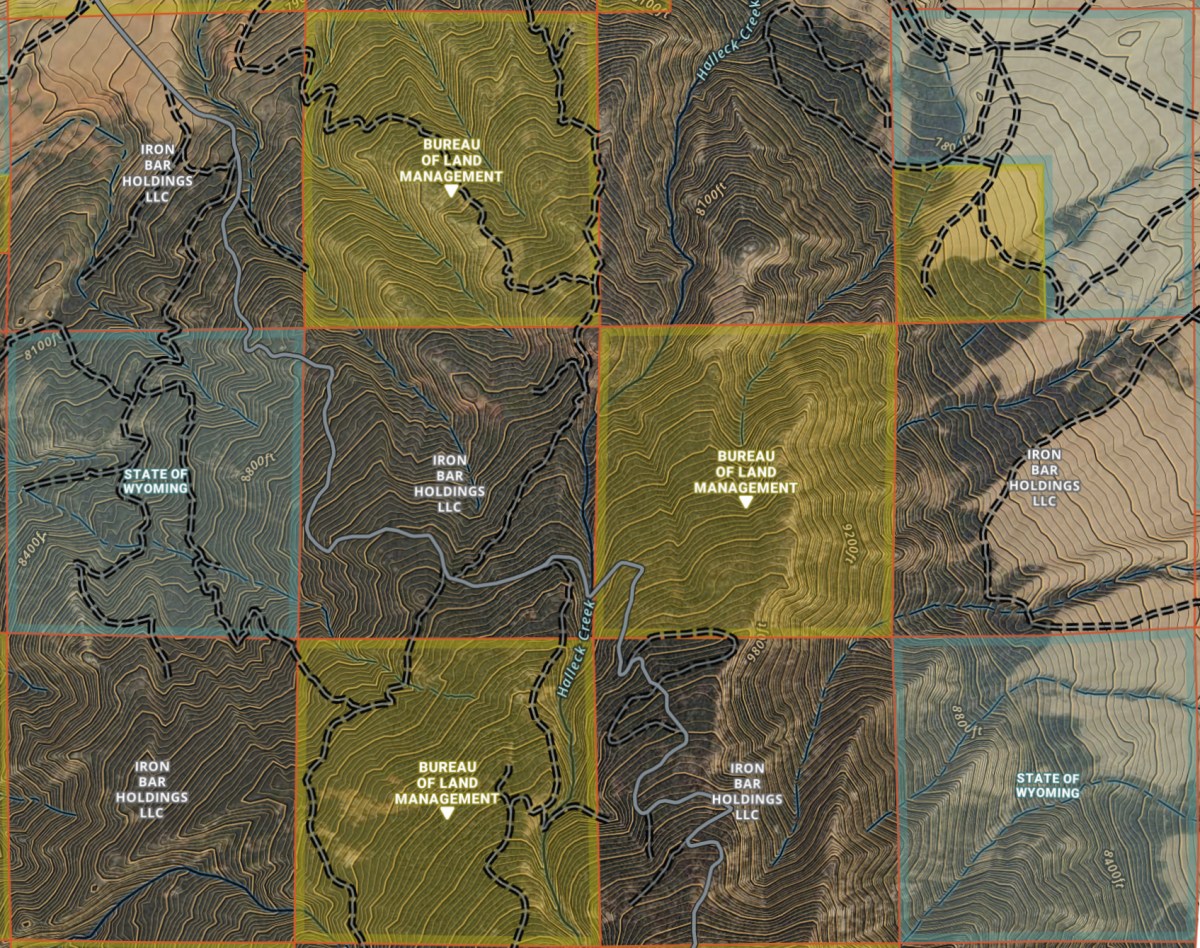The U.S. Supreme Court announced today it would not hear a case that could have given a final decision over who can access millions of acres of public land in the West. The justices provided no reasoning for declining to hear the case.
This means an issue that has roiled the public-land hunting community for years is, at least for now, settled in part of the West. Corner crossing remains legal in Oklahoma, Kansas, New Mexico, Colorado, Wyoming, and Utah — states covered by the 10th Circuit Court of Appeals — said the hunters’ attorney, Ryan Semerad. However, corner crossing remains a legal gray area everywhere else.
“There are many people out there who wanted SCOTUS to take the case,” says Semerad. “Because while [the justices] could have decided corner crossing is illegal, they could also have provided unity for the nation that says these are public lands and private landowners don’t buy the ability to exclude the public from public lands.”
The case in question began in 2021 when a local county sheriff in southeast Wyoming filed criminal trespass charges against four Missouri hunters, who placed a ladder between two catty-corner public parcels of land, climbed over, and hunted elk and deer. The property’s owner, North Carolina pharmaceutical executive Fred Eshelman, maintained the hunters had trespassed on his property. The hunters’ attorney, on the other hand, said that because they only passed through private airspace and did not touch private land, they were in the clear.
Very little case law offered any guidance in any direction. A local county court found the hunters not guilty of criminal trespass by crossing through private airspace. But then Eshelman filed a civil case against the hunters saying they caused more than $7 million in damages by trespassing over his property. A federal judge disagreed, and the 10th Circuit Court of Appeals upheld the judge’s decision.
The 10th Circuit judges ruled that no laws were broken by the Missouri hunters, as previously reported by conservation editor Andrew McKean earlier this year.
“The Hunters never made contact with the surface of Iron Bar’s land,” wrote judge Timothy Tymkovich in March. “There is no evidence the Hunters made physical contact with or damaged Iron Bar’s property.”
The court ultimately based its decision on a provision of the 1885 Unlawful Inclosures Act (UIA), passed by Congress to “harmonize the rights of private landowners and those accessing public lands.” The court concluded that based on case law and language in the law, “any inclosure of public lands is prohibited, and no one may completely prevent or obstruct another from peacefully entering or freely passing over or through public lands.”
“The western checkerboard and UIA reflect a storied period of our history,” wrote Tymkovich. “Whatever the UIA’s merits today, it — and the case law interpreting it — remain good federal law.”
The only place to go from the 10th Circuit was the nation’s highest court, which declined to hear the case today. Eshelman’s chances were low, Semerad says, since the Supreme Court only hears about 5 percent of appeals from lower courts.
While the four hunters’ case is settled, corner crossing still remains fuzzy in many other states. This means any hunter who wants to corner cross in, say, California or Nevada, does so at their own peril. The Supreme Court could still decide to hear a similar case in the future.
Read Next: Senator Lee Is Back with His Attack on Public Lands. This Time He Wants to Butcher the Wilderness Act Under the Guise of Border Security
“This is not an endorsement, they’re not [saying] that the 10th Circuit did a good job, it’s more that the case isn’t reviewable,” Semerad says. “They’re not saying it’s right or wrong, just ‘We’re just not reviewing it.’”
Read the full article here





